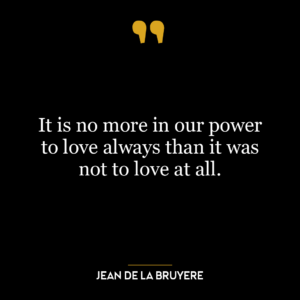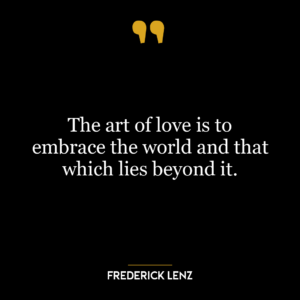This quote suggests that physical, tangible things (matter) cannot truly bring happiness or joy. Instead, it’s the spirit, or the intangible aspects of life such as love, kindness, peace, and fulfillment, that bring true joy. This implies that joy is not found in the materialistic world, but within ourselves, in our spirit or soul.
In today’s consumer-driven society, we often chase after material possessions, believing that they will bring us happiness. We aspire to have the latest gadgets, the most fashionable clothes, the most luxurious cars, and so on. However, this quote challenges that notion, suggesting that these material possessions can never truly bring us joy.
Applying this idea to personal development, it suggests that we should focus less on acquiring material possessions and more on nurturing our spirit. This could be done through practices such as meditation, mindfulness, self-reflection, and acts of kindness. It could also mean pursuing passions and interests, building meaningful relationships, and seeking personal growth and fulfillment.
Furthermore, the quote can be interpreted as a call to shift our perspective from external validation (which is often tied to material possessions) to internal validation (which is tied to our spirit). In this sense, joy comes from being at peace with ourselves, being true to our values, and being content with what we have, rather than constantly striving for more in the materialistic sense.
Overall, this quote serves as a reminder that true joy comes from within, not from the material world around us. It encourages us to focus on our inner selves and to seek happiness in the intangible, spiritual aspects of life.














